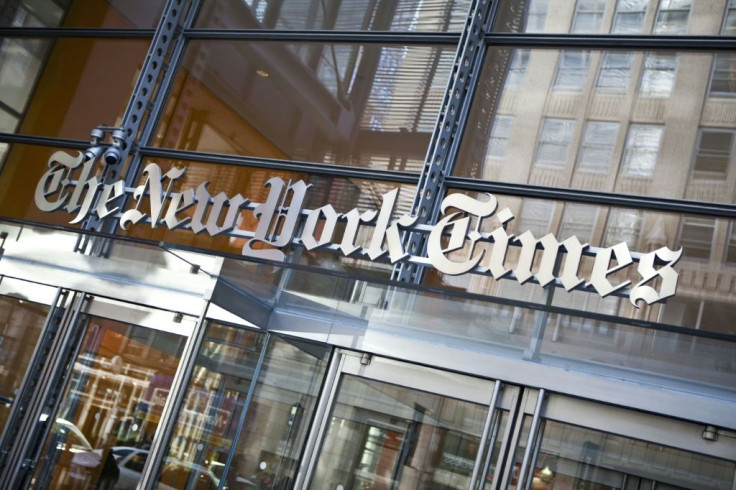Trump Sues The New York Times? Why President's Reelection Campaign Claiming Libel Against Newspaper

KEY POINTS
- The suit alleges the newspaper was trying to hurt the president's reelection effort
- The allegedly libelous article was written by Max Frankel
- The Mueller report said it could not prove a conspiracy between the Trump campaign and the Russian government
Update: 5 p.m. EST
Democratic presidential hopeful Bernie Sanders said the suit is evidence Trump is "taking a page from his dictator friends agound the world [and] is trying to dismantle the right to a free press in the First Amendment by suing the New York Times for publishing an opinion colunn about his dangerous relationship with Russia."
Sanders said the president "believes he is above the law and can do and say whatever he wants without out consequences."
Original story
President Trump’s reelection campaign filed a libel suit against the New York Times on Wednesday over the newspaper’s coverage of the Russia investigation.
The suit accuses the newspaper of “falsely reporting as fact a conspiracy with Russia,” the campaign said.
“Today the president’s reelection campaign filed suit against the New York Times for falsely stating the campaign had an ‘overarching deal’ with ‘Vladimir Putin's oligarchy’ to ‘help the campaign against Hillary Clinton’ in exchange for ‘a new pro-Russian foreign policy, starting with relief from ... economic sanctions.’ The statements were and are 100 percent false and defamatory,” Jenna Ellis, senior legal adviser to the campaign, said in a press release.
“The complaint alleges the Times was aware of the falsity at the time it published them but did so for the intentional purpose of hurting the campaign while misleading its own readers in the process.”
The suit filed in New York State Supreme Court is aimed at holding the Times accountable, the campaign said.
The article in question was written by Max Frankel and headlined, “The real Trump-Russia Quid Pro Quo.”
The investigation by special counsel Robert Mueller found insufficient evidence to conclude the Trump campaign coordinated with Russia despite links between the campaign and the Russian government. The report said the Russian government “perceived it would benefit from a Trump presidency and worked to secure that outcome, and … the campaign expected it would benefit electorally from information stolen and released through Russian efforts.”
Frankel’s article was published before the Mueller report was released.
“It is not entirely surprising that the Times would publish such a blatant false attack against the campaign,” the suit alleges. “There is extensive evidence that the Times is extremely biased against the campaign, and against Republicans in general. This evidence includes, among other things, the fact that the Times has endorsed the Democrat in every United States presidential election of the past 60 years.”
The suit seeks unspecified compensatory and punitive damages along with court costs.
© Copyright IBTimes 2024. All rights reserved.





















